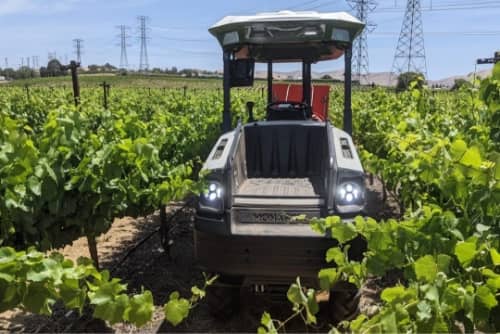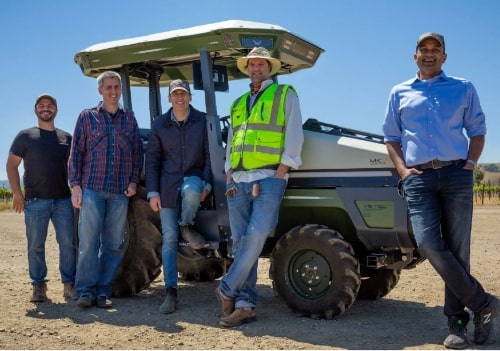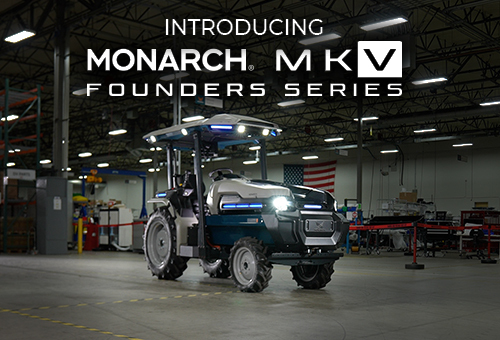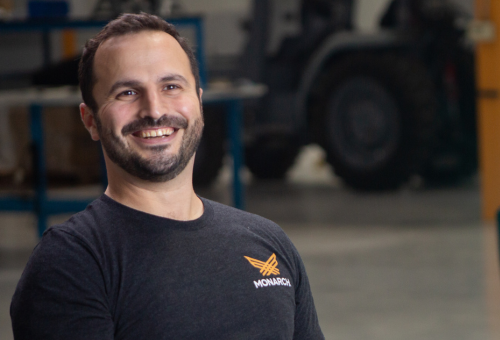LIVERMORE, Calif. – June 14, 2022 – Welcome to the age of the self-driving tractor. In a recent feature, the San Francisco Chronicle covered Monarch Tractor and what farm autonomy will mean for labor, productivity, and safety on the farm.
It’s a technology that appears to be out ahead of the vaunted self-driving passenger car. Notoriously, the auto industry’s onetime forecast that there would be 10 million self-driving passenger cars on the road by 2020 did not come to pass. But while Waymo and Cruise sedans continue to plod experimentally through the streets of San Francisco, a Livermore company called Monarch is aiming to deploy fleets of its driver-optional electric tractors to vineyards and farms by the end of this year.
“The California Farm Bureau supports the formation of an advisory committee, said its director of employment policy, Brian Little. He believes it’s clear that autonomous vehicles will be part of the future, and it’s time to figure out how they’ll fit into the agricultural industry.”
The Monarch can do a lot of things, according to Penmetsa, who has been working in the electric-vehicle space since the early 2000s. Its electric batteries will reduce farmers’ reliance on fuel, cut down on emissions and eventually even enable them to sell power back to the grid, he said. Its smart functions may allow farmers to detect problems in their crops early, to identify water stress, to apply sprays with more precision and offer other advantages.
“We truly believe that autonomy is the way of the future in farming,” said Niki Wente, director of vineyard operations at Livermore’s Wente Vineyards, which has been testing Monarch tractors since 2019 (but has so far kept drivers aboard). “I think it’s potentially a revolution.”
The appeal of an autonomous tractor for those who own farms is clear. Amid a long-term shortage of agricultural labor, farmers could use their workforce more efficiently. Instead of having one driver on every tractor, a single employee could oversee multiple tractors remotely.
One of Monarch’s four co-founders has deep wine-industry connections: Carlo Mondavi, grandson of the late Robert Mondavi, Napa Valley’s best-known winemaker. Mondavi joined forces with Penmetsa and co-founders Zachary Omohundro and Mark Schwager after years of trying, with limited success, to make the wine industry greener. Mondavi felt strongly about eliminating synthetic pesticides and decreasing carbon emissions, and he started a campaign called the Monarch Challenge, which involved selling a rosé wine to raise money for a butterfly-protection organization.




